S2 Games wants to eliminate MOBA strife with Strife
Here's a fun experiment: play a few games of League of Legends or Dota 2. Next, take note of how many of your teammates tell you to uninstall the game or kill yourself (they may or may not preface this simple request with "please"). After a day of (mediocre, poor, great, etc.) play, you'll probably be able to fill a tear-stained diary with highly unimaginative threats, slurs, and familial defamation.
MOBAs, while immensely popular, don't exactly produce the most inviting communities. As it turns out, playing with a team of strangers in a highly competitive environment (coupled with the anonymity of the Internet) means you will be viciously insulted, often without consequence. But the developers at S2 Games, creators of Heroes of Newerth, just announced their upcoming MOBA, Strife, with the goal of mitigating as much of that toxicity as possible. The biggest obstacle? Figuring out how to prevent teams from tearing themselves apart.
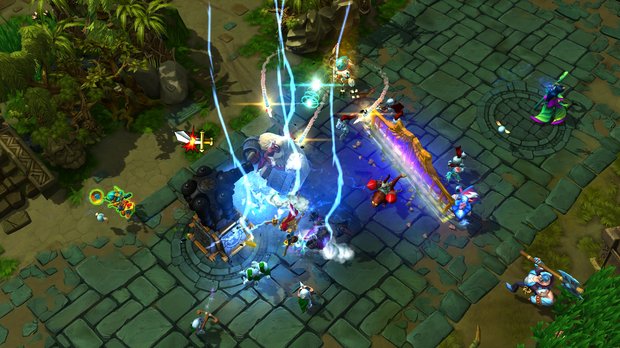
"You're in a team of five, generally, and you're playing against another team of five--so you would think that a lot of the conflict would be taking place across these teams," says Pu Liu, S2's director of monetization. "But what actually happens is that a lot of the bickering, a lot of the fighting, a lot of the name-calling comes from people within your very team. Rather than trying to fix the human race, we're trying to make really intelligent design decisions to elegantly address those problems, so there's less reason to be inflammatory, there's less reason to blame your teammates."
With HoN under their belts, S2 began looking at obvious solutions for reducing harassment. For starters, all-chat--that is, the ability to communicate with the opposing team during a match--has been disabled entirely (hey, cross-team flaming does happen). And, unlike in HoN where you're automatically dropped into a voice-chat channel with your teammates, Strife will feature no such option unless you create a party with people on your friends list. Still, just because someone can't call you a derogatory name over a microphone doesn't mean they can't do so in chat. That's when the developers began looking into ways to remove the unnecessary information often used as flame ammunition from Strife's user interface.
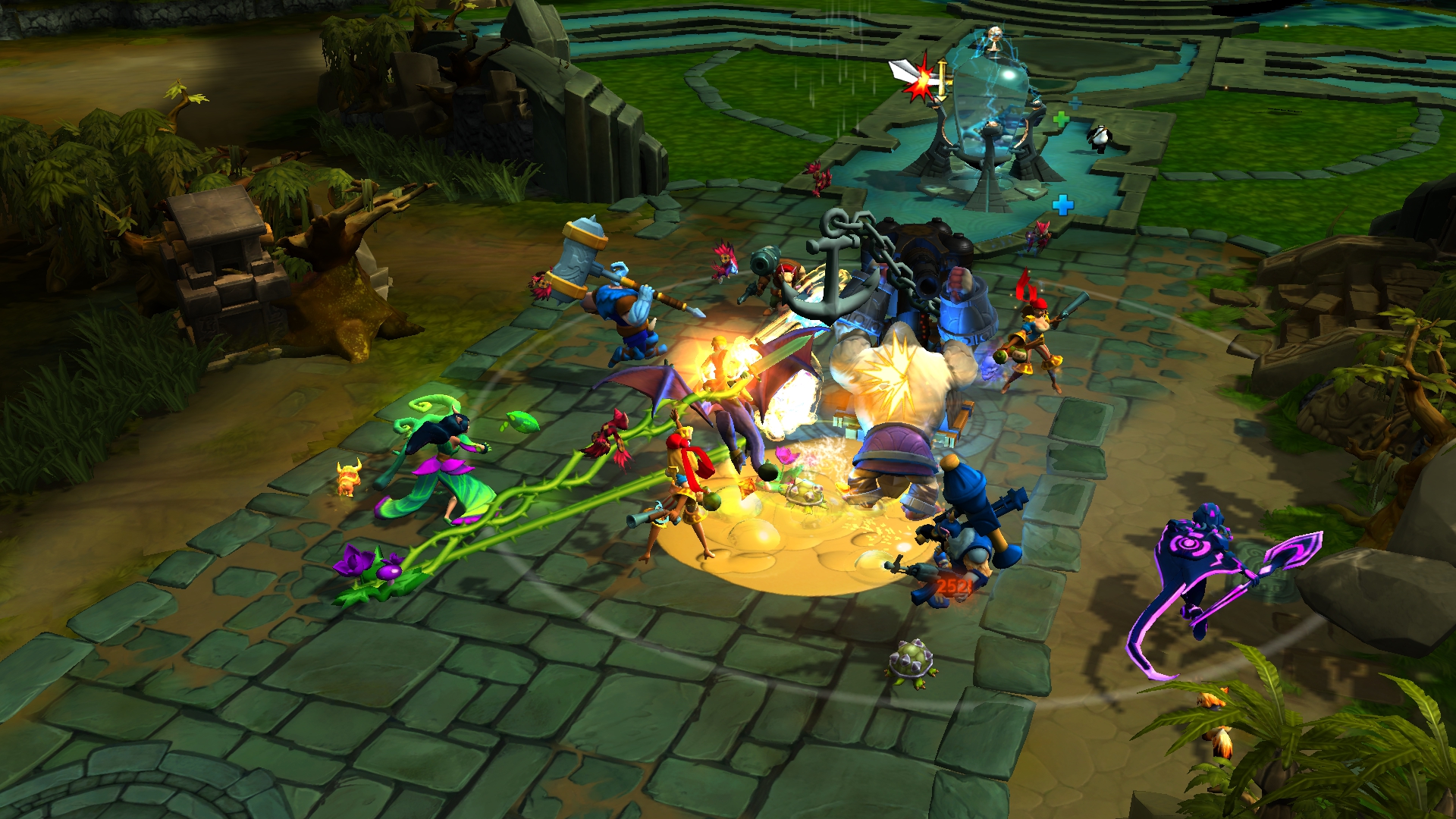
"So, with the UI, we learned in HoN that information is good--but too much information can be a very negative thing," Liu says. " Before the game even starts, you can go, 'oh, your kill-death ratio is really, really awful--how do you only win 33 percent of your games? Why do you play that hero?' So there are pieces of information that we've identified as superfluous to the base knowledge needed to have an enjoyable and rich gameplay experience."
"We've taken out the deaths," Liu says, "because it really does not do very much for you to know how many times your teammate has died exactly. You'll have an idea, generally, of who's performing very well and who's not performing as well, but to know [a teammate] has died 14 times in this game is not exactly pertinent information."
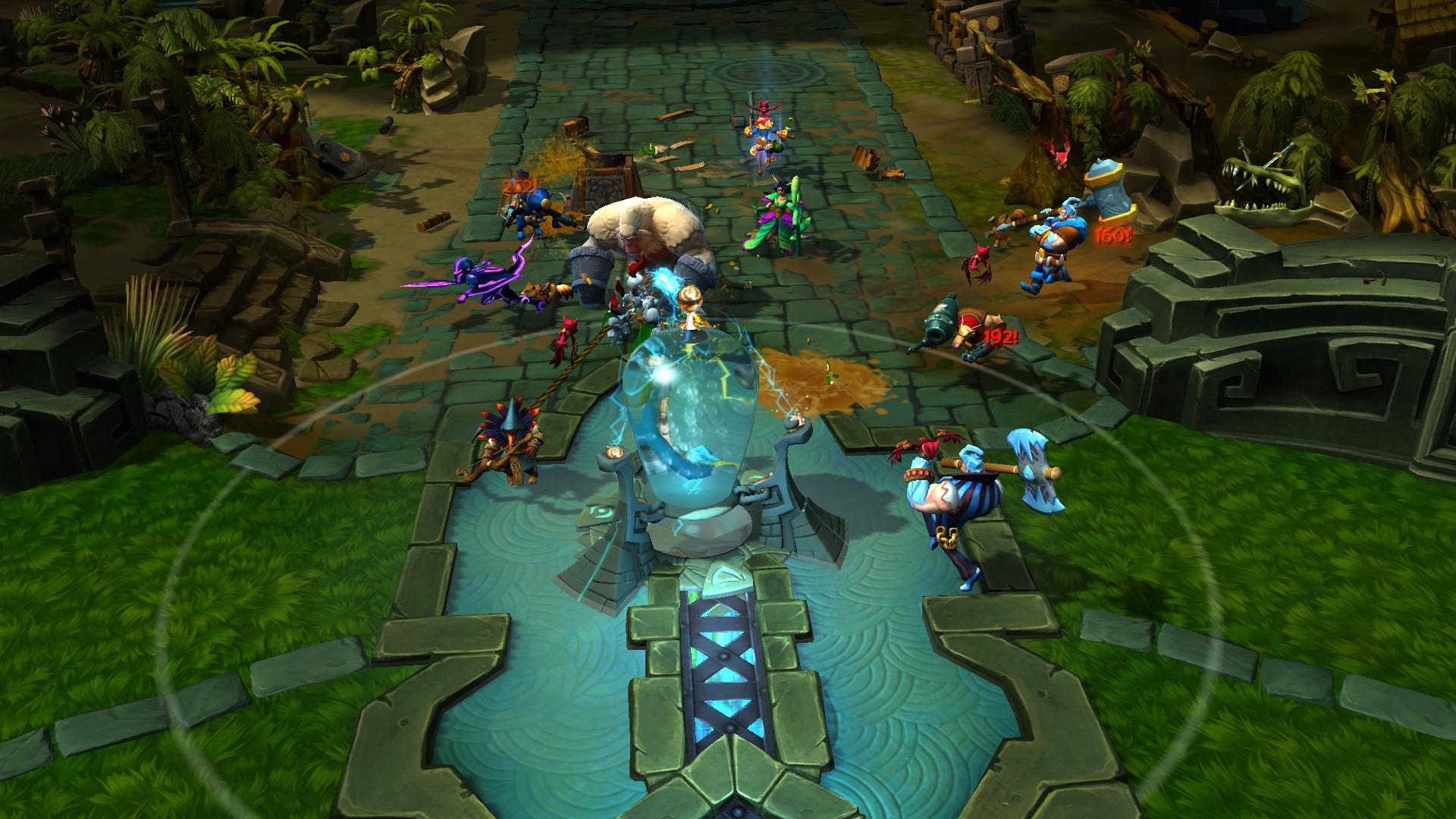
Then there's a feature specific to HoN that's getting axed: the ability to see the cooldowns of all players on your team. Mark DeForest, CEO of S2 Games, says this bit of information alone leads to a ton of toxic behavior. When players die, they often look for a scapegoat--and if you happened to be nearby when they died and had an ability available that could be perceived as life-saving, guess what: it's your fault they got dunked.
Sign up to the GamesRadar+ Newsletter
Weekly digests, tales from the communities you love, and more
All of these surface-level tweaks will likely go a long way toward mitigating some hostility, but what about the conflicts that stem from standard MOBA mechanics? In most MOBAs, only the player that performs a killing blow on a creep (an AI-controlled NPC) receives gold, even if another player aided in the kill. While this creates a huge amount of tension between opposing teams, who try to deny one another from farming up kills and earning gold, it also creates friction between players on a team that share a lane.
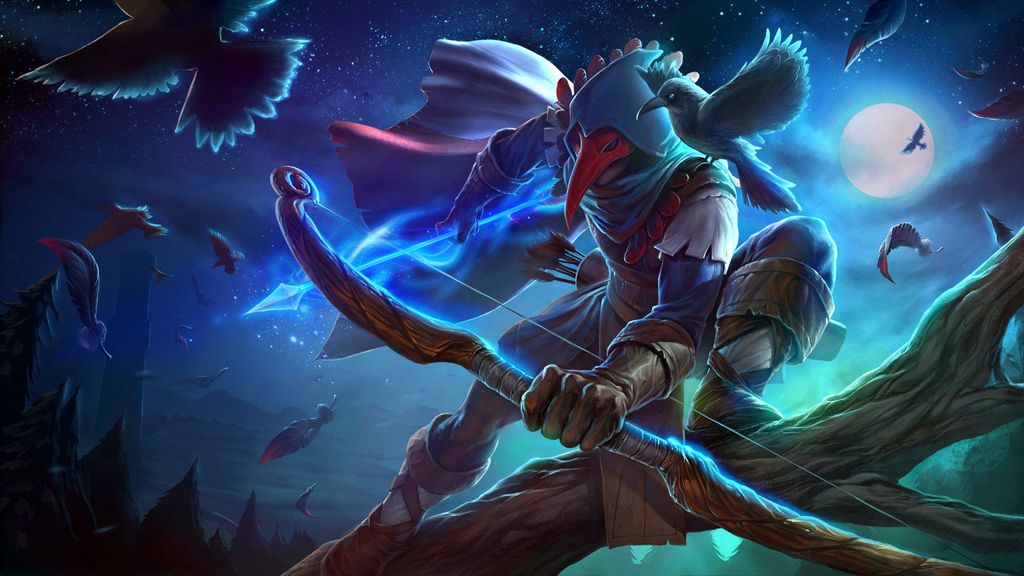
To combat this, S2 made gold a shared resource in Strife. Every creep is worth 70 gold. If you're in a solo lane and you land a last-hit, you get 35; the other half is then divided evenly among your teammates. If you're in a duo lane, both you and your partner receive 35 gold, thus enabling players who prefer to use support characters to play more of an active role in the laning phase.
Anyone who's played a few games of a MOBA knows that intra-team fights frequently break out before a match even begins. Every player develops a favorite position or character over time, and it sucks when you're forced into role out of team necessity (or because of those stubborn assholes who auto-lock the second the pre-match screen pops up). S2 has a solution for this, too. In Strife, you'll select your character before you even queue for a match.
That way, the matchmaking system will (hopefully) populate a team based on pre-selected characters and roles, eliminating any confusion or hostility typically generated by contention over who gets to play what. This system even has the added benefit of ranking your performance on a per-character basis. If you're a high level player looking to try out a new hero, you don't have to worry about learning the ropes in a super competitive environment.
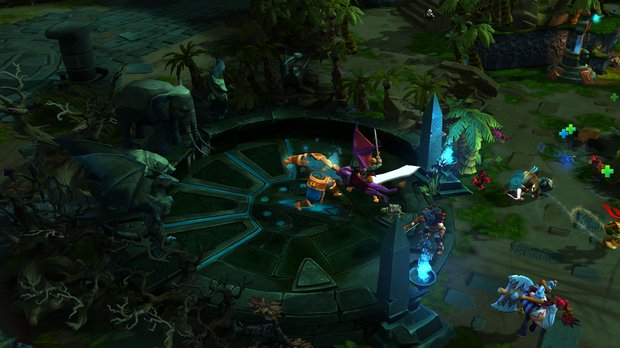
Still, despite their good intentions, S2 realizes that some people will still be jerks just for the hell of it. That's where their final weapon against toxicity comes in: Strife's Karma system. At the end of each match, you have the option to "upvote" or "downvote" players, based on your experience. If someone on your team was trolling the whole game, or just being a jerk, you can give them negative Karma. Once they receive enough "downvotes," the amount of in-game rewards they earn is directly affected, potentially cutting them off entirely. This system will only affect the outliers, so as to prevent trolls from downvoting you into oblivion.
All of these ideas sound interesting on paper, but it's hard to tell how they'll actually play out. Some, such as the way gold is shared, or how you'll be locked into a certain hero before you get the chance to see your team's composition, sound like they could end up tying players' hands when it comes to more advanced strategy. But S2 is confident these anti-hostility systems will curb at least a bit of the flaming that players have largely accepted as a part of the genre. Of course, we are talking about playing competitive, team-based games with random strangers on the Internet, here. There's only so much S2 can do.
Ryan was once the Executive Editor of GamesRadar, before moving into the world of games development. He worked as a Brand Manager at EA, and then at Bethesda Softworks, before moving to 2K. He briefly went back to EA and is now the Director of Global Marketing Strategy at 2K.



